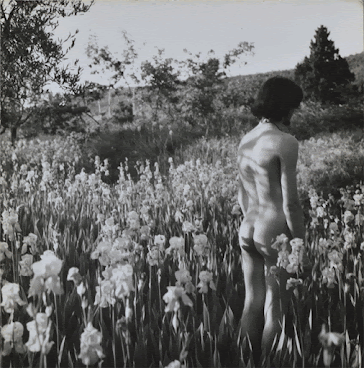'Because things don’t appear to be the known thing; they aren’t what they seemed to be
neither will they become what they might appear to become.'
Posted by Tessa den Uyl
Italy 1960's . Picture credit: Antonio Borrani
The spectator’s interpretation depends on how they consider the naked body. Even when the nude figure has inspired general acceptance in the Western world, especially in forms of art, we might think it a bit strange if we would see an undressed person walking on the street. The quintessence of humankind certainly is undressed, although we are used to seeing the body covered up.
Turning to the decade of the sixties when some of the younger generation longed for freedom from the conservatism at that time, the exaltation of the uncovered body symbolised that quest for freedom. No wonder the pureness of nudity is similar to taking off a mask. To live without pretence is nevertheless not an easy goal to set.
Indeed, almost sixty years ahead, particularly at the beach and also on the streets, bodies are surely covered up less than they were. Although that progress of freedom seems to have translated itself rather into an imposed fashion these days, than the acquisition of a free spirit, as some were looking for when this picture was taken.
In the West, nudity belongs to private atmospheres to this day, and the naked body, most often, is conflated with sexuality. To exploit nakedness is an optional which does not withstand the fact that we are all born naked. Yet somehow we seem to have trouble owning that nakedness, in which we become unspoiled by structures, and can accept ourselves not as objects or art-forms, but simply for what we are. To put it a bit crudely: for one of those standing upright animals.

